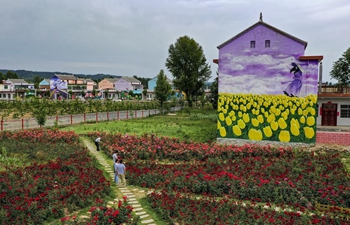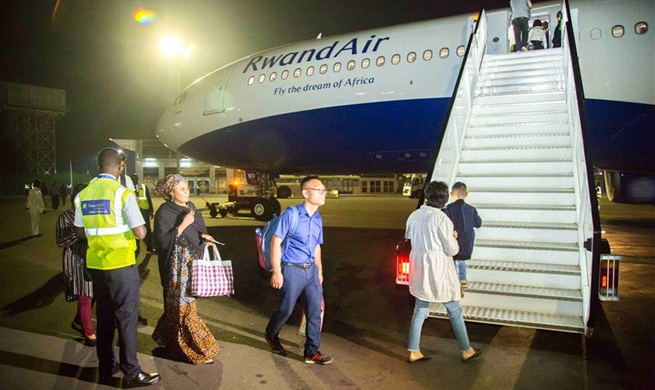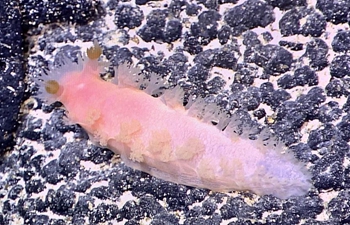SYDNEY, June 18 (Xinhua) -- A groundbreaking global drug trial has yielded promising results for children with achondroplasia, the most common form of dwarfism, making it possible for them to grow at close to the same rate as average height children.
Led by the Murdoch Children's Research Institute (MCRI) in Melbourne, Australia, results for phase two of clinical trials of the drug vosoritide were published in the New England Journal of Medicine on Tuesday.
The second component of the study, which is designed and funded by U.S. based biotechnology company BioMarin Pharmaceutical, saw 35 children aged five to 14 years administered vosoritide in varying doses.
Those that received the highest dose grew at a similar rate to average height children of the same age, a result which was sustained over three and a half years.
On average participants in the trial grew 50 percent faster than their baseline rate with no adverse effects to body proportion.
"This study is the very first report of a possible disruptive, precision therapy for children with achondroplasia, which we hope will improve their health outcomes and functioning, as well as increase their height and access to their environment," lead author and MCRI clinical geneticist Professor Ravi Savarirayan said.
Savarirayan stopped short of calling the breakthrough a cure for achondroplasia, but said that the results could have significant health outcomes for those born with the condition.
"I wouldn't say a cure, but what I would say is that on the horizon we've got better options for families to avoid surgery, to keep their kids healthy and avoid them coming to hospital," he said.
Achondroplasia affects about one in every 25,000 infants and is caused by a mutation in the FGFR3 gene that impairs the growth of bones in the limbs, the spine, and base of the skull.
Savarirayan explained that in children born with achondroplasia, the FGFR3 gene becomes overactive, which he likens to the overwatering of a plant.
"This drug basically kinks the hose so that the plant gets the right amount of water and can resume regular growth," Savarirayan said.
Phase two of the trial ran over four years across research centers in Australia, France, Britain and the United States, and was mainly aimed at evaluating the safety of the drug and determining optimal dosage.
Results showed that vosoritide was generally well tolerated by participants and increased growth rate proportional to dosage.
Vosoritide first came to light as a potential treatment for achondroplasia in 2011 following successful tests on mice.
The third stage of the trial is currently underway to test the drug on a larger group of patients aged five to 18 years.













